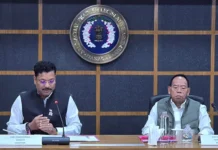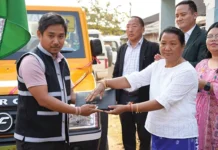[ Nabanita Deshmukh ]
The World Book Day is here, so why not celebrate it with exciting discussions on books and reading? Books play an important role in developing literacy, firing up the imagination, expanding knowledge of various subjects, and helping children look at the world with understanding and empathy. It’s no doubt a great idea to make books the focus of learning, but in today’s world, where almost everyone is glued to their mobile screens, how to make reading relevant for young readers?
There are several answers to this question, and here are a few suggestions:
Books at home and in classrooms
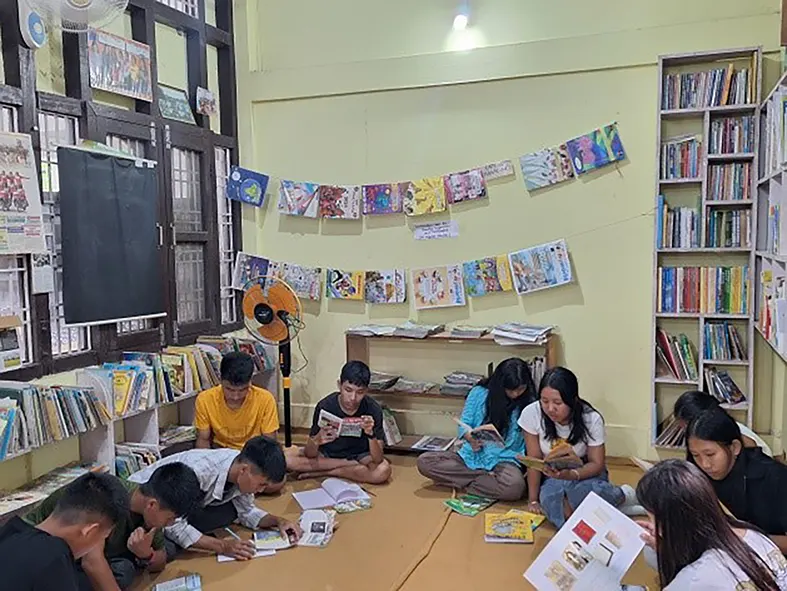
In an ideal world, parents, guardians and teachers read and children are encouraged to pick up a book. Constructive change begins at home, not by lecturing but by setting an example. In reality, however, if reading does not take place by parents or teachers due to reasons like incompetence, illiteracy, laziness, lack of time, etc, it is imperative to get books into homes and classrooms.
Teachers or parents could show and read out tales from books and also let children leaf through books on their own. These initial steps could create an interest in books and who knows, some students may actually become eager readers!
Ngurang Meena, an educator and social activist from Arunachal Pradesh, has started a free ‘standing’ library by the roadside in Nirjuli, her hometown. Children, who are passing by, grow curious, pick up a book and start reading it. Meena’s mother was illiterate but her father, who studied till Class 10, introduced different types of books to his daughter in a town where libraries were unheard of. The books Ngurang read during childhood inspired her later to start a library and also establish the Ngurang Learning Institute that imparts education to illiterate adults.
Libraries
Children who have access to a library tend to become motivated readers. However, these libraries also need good librarians who are competent, engaging and creative. Activities centred on books such as quizzes, book talks, review writing, creating books through craft, reading aloud sessions of stories and poems, etc, could be conducted. Authors could be invited to interact with children and book exhibitions can be arranged to expose readers to books and interesting stories.
In Arunachal Pradesh, theBamboosa Library in Tezu, started by Satyanarayanan Mundayoor, also known as Uncle Moosa, is a fun-filled place. Young readers gather there not only to read books but also to take part in activities such as skits, quizzes, talks, poetry recitation, storytelling, etc. Interestingly, many of the regular library goers have now become confident readers and eager learners.
Types of storybooks
Reading competency and motivation improves when different kinds of reading materials are introduced to young learners. These books arouse curiosity and increase children’s motivation to read. Apart from regular books, pop-up storybooks, big books, rebus stories, fabric books, etc, are excellent resources to help children to read.
Pop-up story books, for example, have three dimensional pages that pop up as the page is turned. Rebus stories are a combination of images and text to support young children in their reading journey. Big books have large pages with stories that can be used during storytelling with bigger groups of small learners. Fabric books are made of cloth and are suitable for babies and toddlers to handle. They do not tear easily and are completely safe because pages do not have sharp corners and rough texture.
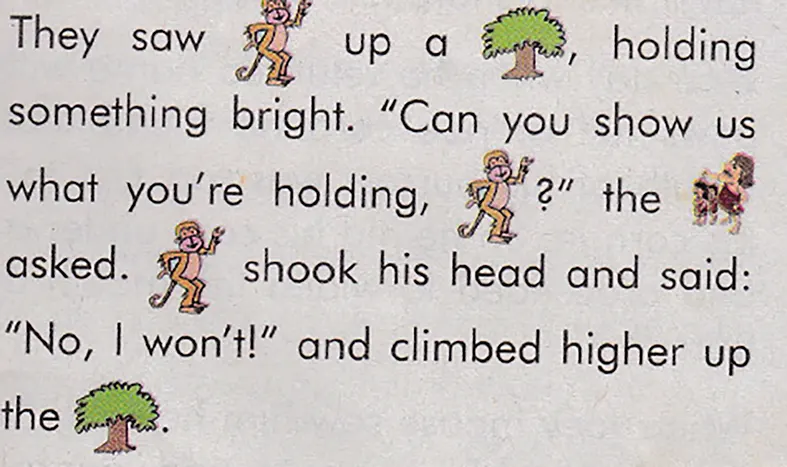
Audio stories
Physical books alone cannot satisfy the modern young reader who has been brought up on a generous diet of digital content. It is therefore necessary to introduce audio and audio visual stories to young readers to improve their reading competencies.
Good audio stories have the advantage to improve the reading skills of children as the pronunciation of words and narration of stories are usually clear and correct. The challenges of diction and grammar that many teachers or parents face while telling a story are greatly diminished. Teachers largely benefit by listening to audio stories as their own language competency improves. Besides, audio stories develop the imagination of children and increase their concentration levels and interest.
AniBooks
AniBooks are not the usual audiovisual stories that children watch on their mobiles or the televisions. They are digitised stories with same language subtitling (SLS) that is synchronised with the narration. In other words, as the narration progresses, a light curser moves on the text of the story, inserted at the bottom of the screen. This function makes readers notice the text and also listen to the narration and thereby improve their reading skills. AniBooks, which are effective resources for developing literacy, promote the idea of ‘what you hear is what you read’.
SLS, an intrinsic feature of AniBooks, is the culmination of a 20-year-old research undertaken by Dr Brij Kothari at the Indian Institute of Management, Ahmedabad (IIM-A). Today it has become an important tool that is being used in areas such as television programmes and children’s stories and also addresses the needs of people with hearing impairment.
Interestingly, AniBooks will now be created and used for the preservation of indigenous languages in Arunachal. This would be part of the Billion Readers Project (BIRD) sponsored by the Government of Arunachal Pradesh, the Indian Institute of Technology, Delhi (IIT-D) and PlanetRead, a not for profit organisation that works in the promotion of education and literacy.
The future of books
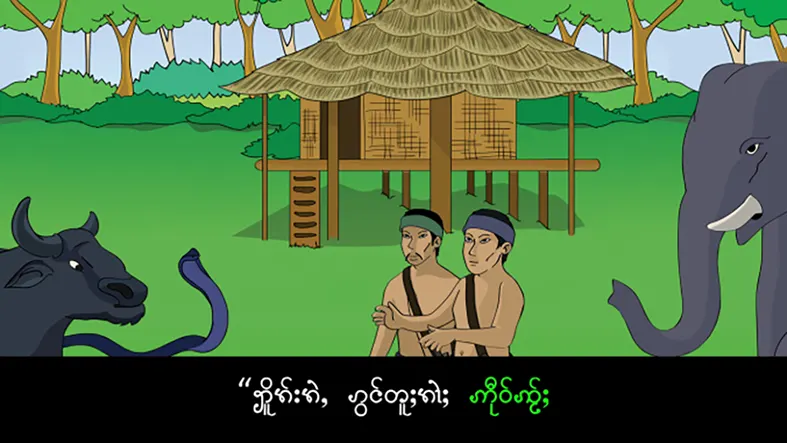
Getting children to read has become part of a larger process that includes a vast repertoire of reading resources. We are now dealing with a new generation of readers who are digitally savvy but also need the support of conventional print material to read better. The challenge is to make these resources interesting, interactive and accessible, so that young readers feel the need to read, understand and explore books, whether they be digital or physical. (Nabanita Deshmukh is currently working on a project on language preservation through folktales with the Government of Arunachal Pradesh)

